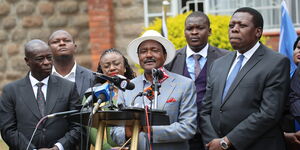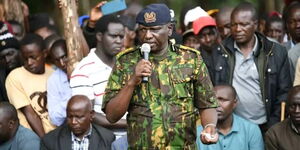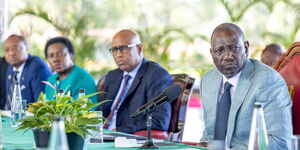The deployment of 1,000 Kenyan police officers to Haiti has met numerous hurdles which has resulted in violence escalating in the Caribbean nation.
Kenya's mission was authorised by the UN in October 2023 but is yet to be implemented. In the April Security Council Report, the UN emphasised the need for the deployment to quell the chaos in Haiti.
In the report, the UN revealed that during the upcoming 90-day briefing of members of the council, two plans to expedite the deployment of the Multinational Security Support (MSS) team led by Kenya will be discussed.
One of the solutions is the implementation of the 11 March agreement on the transitional governance arrangements, which will pave the way for the deployment of the troops.
"This is an important step towards consolidating political consensus among Haitian leaders, and facilitating the deployment of the MSS mission," read part of the report.
Additionally, establishing a transitional council will, in the long run, allow Haiti to conduct national elections which will address the root causes of the country's instability.
Meanwhile, the second solution is mobilising the international community to provide sufficient support to the troops who will be part of the peacekeeping mission.
"Council members are united in their concern about the spiralling situation in Haiti, including the most recent wave of violence, and generally agree on the need for a Haitian-led political solution that addresses both security and socioeconomic challenges," read part of the report.
Per the report, the Security Council was committed to supporting both international and domestic efforts geared toward stabilising Haiti's political situation and stemming the recent surge in gang violence.
The international community has been supportive of the mission with some countries such as the US offering billions for the mission and also funds for ammunition.
Canada has also contributed about Ksh8 billion for the mission as well as offering training to the troops ahead of the deployment. This training shall be conducted in Jamaica for about a month.
On the other hand, Benin, in February, offered to support the Kenya-led mission by deploying 2,000 troops. Other countries set to offer officers include Jamaica, the Bahamas, Antigua and Barbuda.
However, some countries such as the US have refused requests to send their troops to Haiti. This has raised concerns about why countries with highly advanced militaries have failed to offer to lead the mission.
Kenya has received criticism for agreeing to the mission with some officers backing down in fear of their lives. The government has however emphasised that the deployment was still on.












